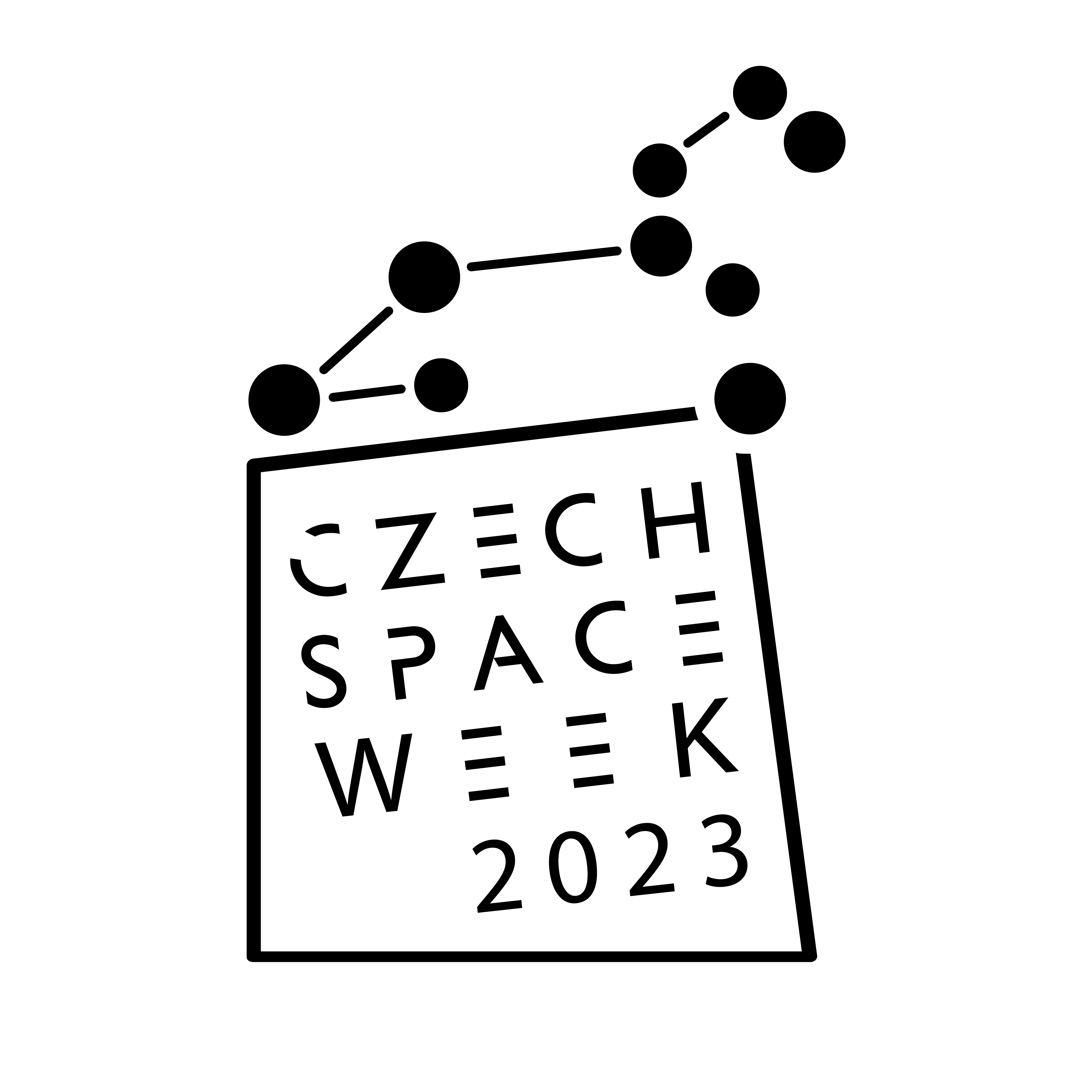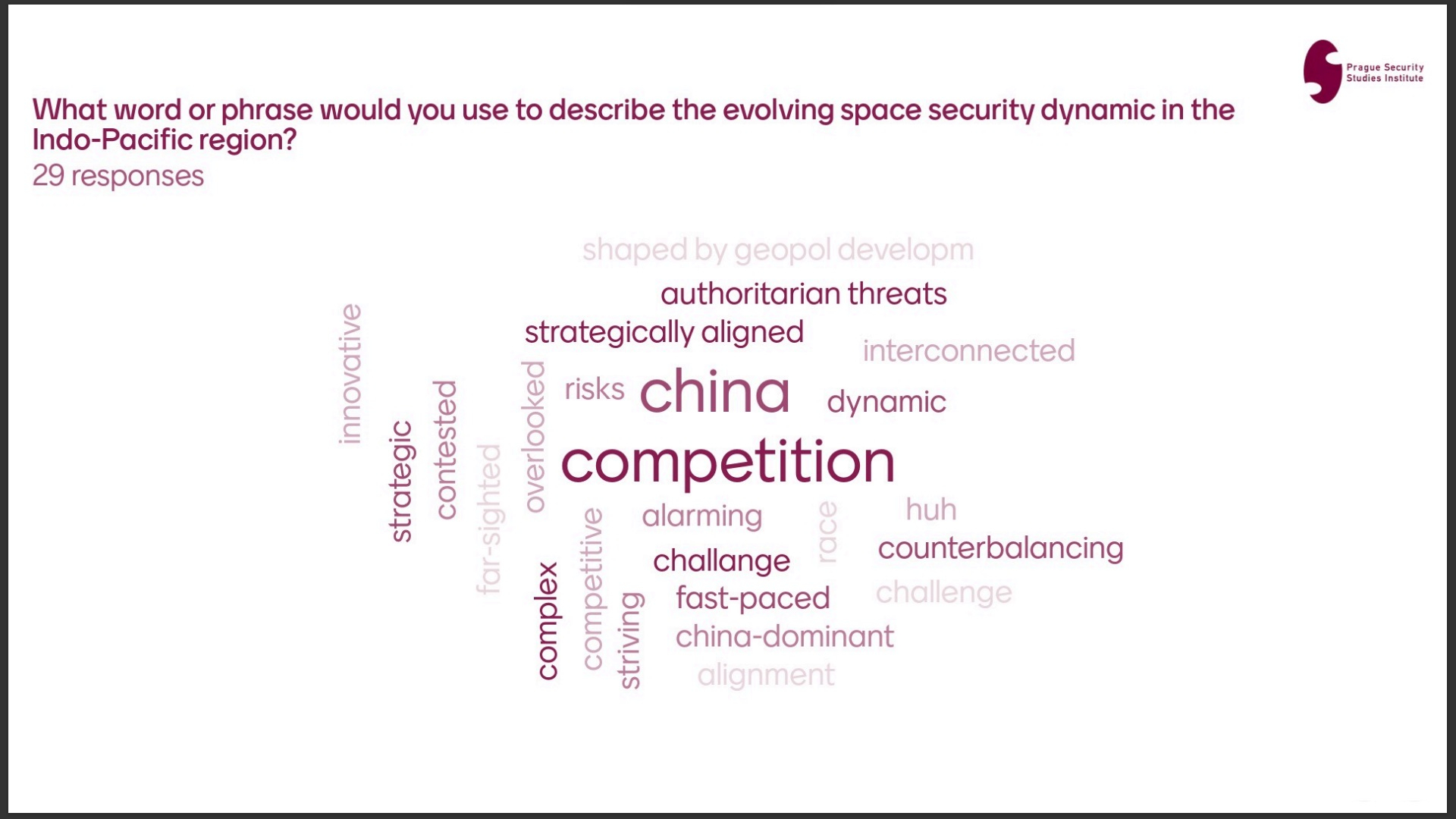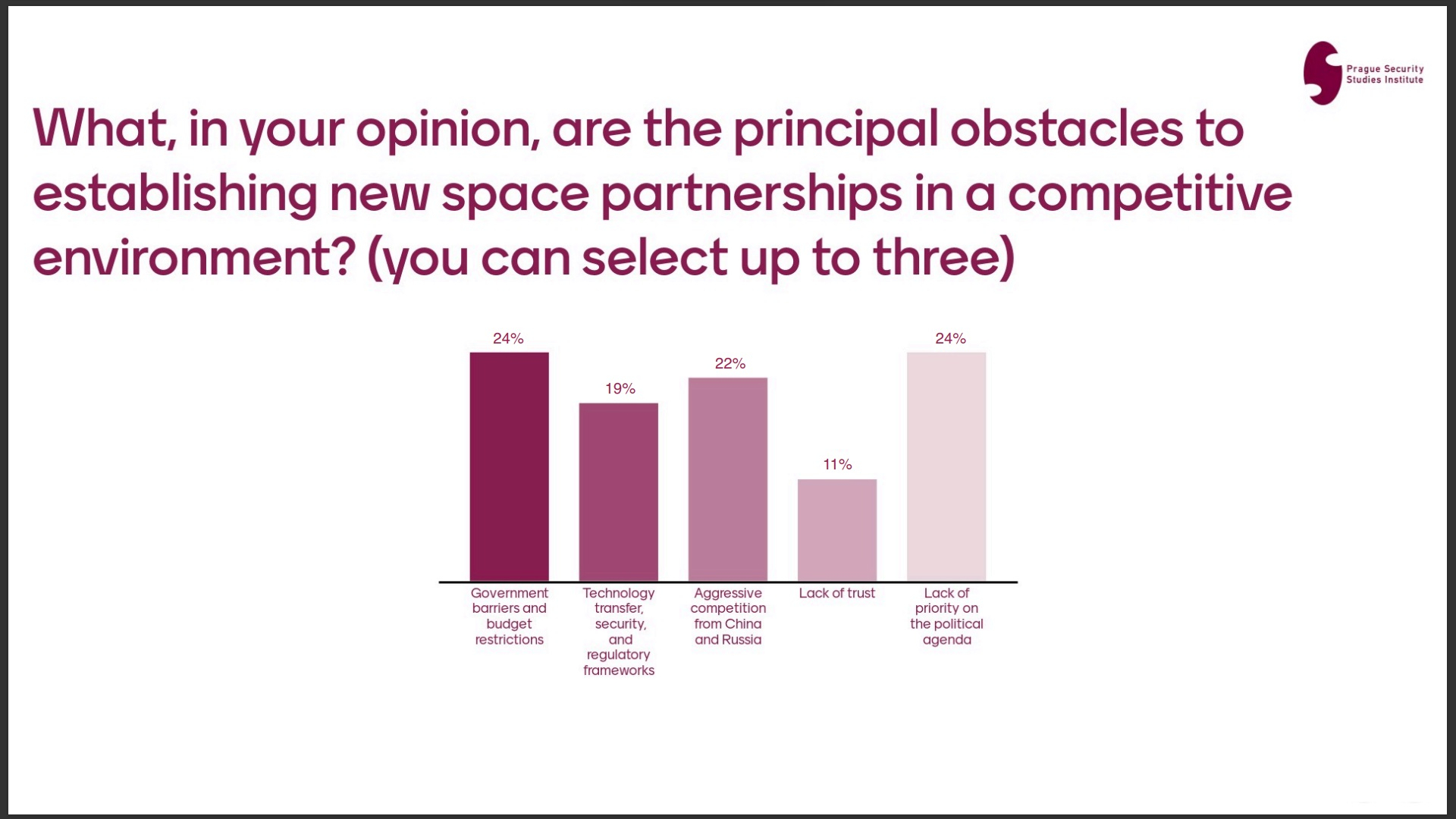27 Nov 2023/PSSI
Prague Security Studies Institute (PSSI) organized the Second PSSI Roundtable on Space Security Partnerships, which focused on the Indo-Pacific region in the context of the new global space race.
In March 2022, PSSI organized its first roundtable on “Indo-Pacific Space Security Partnerships”, entitled “European - Indo-Pacific Partnership on Space Security”. That event, involving both public and closed discussions, sought to capture the space power dynamic in the region, with a particular focus on targeted economic & financial outreach initiatives of China and the implications for Europe and its Indo-Pacific strategy.
This second iteration of the online roundtable explored some of the particulars of the new global space race, from the perspectives of key actors in the Indo-Pacific region, against the backdrop of the wars in Europe and the Middle East, the rapidly evolving Iranian and North Korean nuclear and missile threats and the continued assertiveness of China globally.
Our four distinguished speakers included:
- Dr. Malcolm Davis, Senior Analyst, Australian Strategic Policy Institute (ASPI), Australia
- Dr. Namrata Goswami, Professor, Thunderbird School of Global Management, Arizona State University, U.S.
- Mr. Hermann Ludwig Moeller, Director, European Space Policy Institute, Germany
- Dr. Kazuto Suzuki, Professor of Science and Technology Policy at the Graduate School of Public Policy at the University of Tokyo, Japan.
The panel discussion was moderated by Dr. Jana Robinson, Managing Director, Prague Security Studies Institute (PSSI)
Questions that were discussed:
What are the key elements of the global space race when viewed through the lens of current military/defense, governance, and economic & financial (E&F) activities? Are China and its allies (notably Russia) politically winning the global ground-based space race via leveraging their space equipment, technologies, launch capabilities, subsidized financing, and their forging of numerous space partnerships? What are the metrics for measuring success in this regard? How should we understand the strategic significance of India’s successful Chandrayaan-3 lunar landing? What is the status of the US-China Moon race (e.g., the Artemis Program vs. China’s call for joint “mission-level” projects with countries and international organizations accompanying its Chang-e 8 mission)? What should Japan, India, Australia, the US, and other partners (such as Taiwan) do to better position themselves in this high-stakes competition? Where does Europe fit into this equation?

This event was organized as part of the Czech Space Week. The sixth edition of the largest event in the Czech Republic focused on the space industry takes place from 25. 11. to 2. 12. 2023. Whether you are a large industrial enterprise, a newly established startup, an educator, a student or just a space fan, you can look forward to a lot of information, interesting guests and countless opportunities to learn about everything important that drives the space industry in the Czech Republic.
You can watch the video below:
The results of an anonymous interactive Mentimeter poll conducted during the Second PSSI Roundtable on Indo-Pacific Space Security Partnerships that took place on November 27, 2023, are available here. The two questions raised were: What word or phrase would you use to describe the evolving space security dynamic in the Indo-Pacific region; and, What, in your opinion, are the principal obstacles to establishing new space partnerships in a competitive environment. The results of the poll are available in a Word Cloud and a bar chart, respectively.

